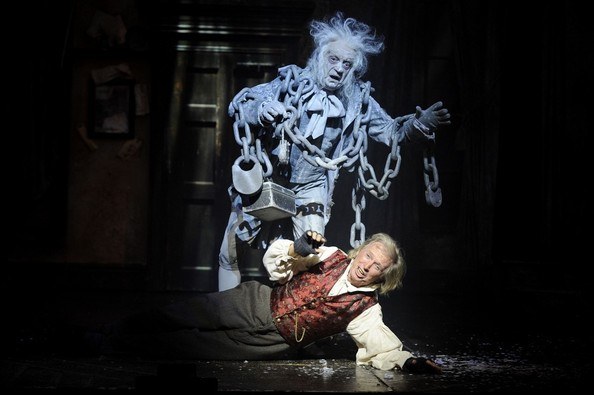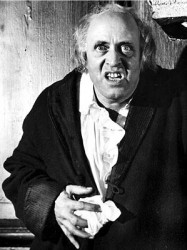
Now let me play the holiday season’s favorite character—Scrooge! That’s the bah humbug part, not the money grubbing, no time off for family and friends part, the part that asks: “Does Washington really need all of these Christmas shows? I mean—really?”.

It’s bad enough that TV has begun airing its traditional favorites from White Christmas and Miracle on 34th Streetto Rudolph the Red-Nosed Reindeer, to new favorites likeNational Lampoon’s Christmas Vacation and A Christmas Story to newer favorites like The Grinch and The Muppet Christmas Carol, but they are also piling on additional 21st century ones from It’s Christmas, Carol and Hitched for the Holidays to Matchmaker Santa and That Cyborg Santa’s Got an Ax (not really, but a sci-fi fan can dream!).
And it’s even worse that Black Friday, that beginning of Commercial Christmas’s selling season—though not yet an official holiday—has become solidified in our national consciousness as a day where it is our patriotic duty to shop for Santa. Although stores have been starting their sales in Black Friday’s wee hours for 30+ plus years and, then, last year many opened at midnight, this year Target and Walmart moved Black Friday into Thanksgiving Thursday. Pretty soon, those Black Friday sales will have Labor Day in their sights!

And to top it off Fox News has made “The War on Christmas” its annual holiday event, during which its pundits claim that, despite all the evidence to the contrary, the idea of Christmas is under siege by atheists and civil libertarians alike, who are out to do away with America’s number one cultural obsession.
So do so many of Washington’s theatres have to make a Christmas show such a cultural given as well? According to my research, this December there are no fewer than 17 professional Christmas shows in the immediate Washington area alone: no fewer than 6 Christmas Carols and 4 Nutcrackers, A White Christmas, a couple of gritty punked out Christmas shows, a Christmas show on the prairie and one in Ireland, a Christmas pageant, and a one-man version of A Wonderful Life. And I’m not even counting the Christmas concerts!
I mean, is all this abundance really necessary? Does it help theatres meet their bottomline? Does it help them fulfill their patriotic duty? Does it help people get into the Christmas spirit? Are Christmas shows like prayers helping us all bring Peace on Earth and Good Will toward Men? If they are, then one would think that there would be a little more evidence that their abundance worked. Last I looked, however, our politicians are still just as gridlocked in their nastiness, the war in Afghanistan still wages on interminably, the Middle East is still on the verge of Armageddon, and traffic in DC is just as hostile as its ever been. Hence, these shows do not seem to be bewitching anyone’s disposition—even briefly.
To read more click here.
